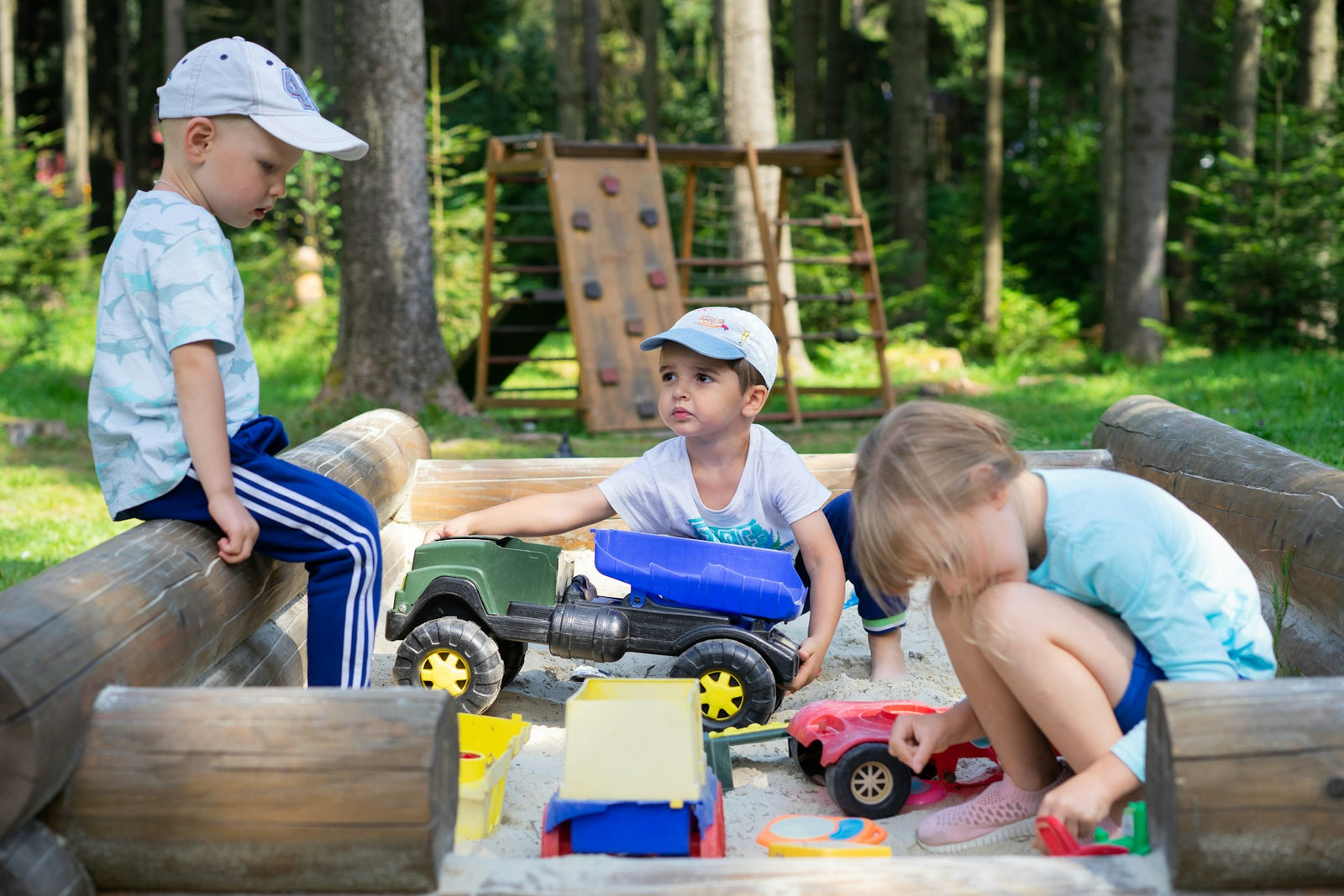Integrating Montessori Principles in Outdoor Play Spaces for Children

Outdoor play is an integral part of a child's physical, cognitive, and social development. Combining outdoor play's advantages with Montessori principles can create an enriching and stimulating environment for children to explore, learn, and grow. In this article, we will discuss ways to design Montessori-inspired outdoor play spaces that encourage children's connection to nature, enhance their motor and sensory skills, and foster social interactions.
By understanding the benefits of outdoor play in Montessori education and incorporating its principles in the design of outdoor play spaces, parents and caregivers can provide children with invaluable opportunities for physical development, socialization, and connection to the natural world.
We will delve into the key elements of Montessori-inspired outdoor play spaces, offering practical ideas and suggestions for designing an engaging and stimulating environment that promotes exploration, discovery, and learning. With the right combination of Montessori principles and outdoor play, you can create a haven of learning and growth for your child, fostering their love for nature and enhancing their overall development.
1. The Importance of Outdoor Play in Montessori Education
Outdoor play holds immense significance in Montessori education for several reasons:
A. Physical Development: Outdoor play promotes the development of gross motor skills, balance, and coordination, laying the foundation for a healthy, active lifestyle.
B. Cognitive and Emotional Growth: Exploring the outdoors stimulates curiosity, problem-solving abilities, and creativity while fostering emotional well-being and stress relief.
C. Connection to Nature: Outdoor play encourages children to develop a love for and understanding of the natural world, instilling values of environmental stewardship and responsibility.
D. Socialization: Group activities and free play outdoors facilitate the development of communication skills, cooperation, and social competence.
2. Key Elements of Montessori-Inspired Outdoor Play Spaces
Montessori-inspired outdoor play spaces incorporate several elements that promote exploration, learning, and growth:
A. Natural Materials: Use natural materials, such as wood, stone, sand, and water, to create engaging, sensory-rich environments that encourage hands-on exploration.
B. Defined Activity Areas: Organize your outdoor space into clearly defined zones for different activities, such as gardening, nature exploration, and gross motor play, facilitating targeted skill development.
C. Freedom and Autonomy: Provide ample opportunities for children to exercise independence and decision-making in their play choices, aligning with the Montessori principle of child-led learning.
3. Practical Ideas for Montessori Outdoor Activities
There are countless activities that can be incorporated into a Montessori-inspired outdoor play space, promoting diverse aspects of development:
A. Gardening and Caring for Nature: Create a designated area for children to plant and care for flowers, vegetables, or other plants, nurturing responsibility and a connection to nature.
B. Sensory Stations: Set up sensory play stations with materials such as sand, water, or gravel, allowing children to explore various textures, temperatures, and consistencies.
C. Gross Motor Activities: Incorporate equipment and materials for gross motor play, such as climbing structures, balance beams, and natural obstacle courses, fostering physical development and coordination.
D. Art and Creative Expression: Provide an outdoor space for artistic and creative exploration, including easels for painting or an area for nature-inspired crafts and creations.
4. Encouraging Exploration and Discovery in Outdoor Environments
Fostering a sense of exploration and discovery in outdoor play spaces is essential for nurturing curiosity and cognitive growth:
A. Offer Loose Parts: Include a variety of natural and open-ended materials, such as sticks, stones, leaves, and pinecones, which children can use to construct, create, and imagine.
B. Prompt Observation and Inquiry: Encourage children to observe their surroundings, ask questions, and make connections between their discoveries and prior knowledge.
C. Support Risk-Taking: Allow children to take safe risks and challenge themselves physically and cognitively, building self-confidence and resilience.
5. The Role of Parents and Caregivers in Montessori Outdoor Play
Parents and caregivers play a vital role in supporting Montessori-inspired outdoor play experiences:
A. Model Engagement with Nature: Demonstrate a genuine interest in and appreciation for the natural world, engage in outdoor activities with your child, and share your observations and excitement.
B. Foster Autonomy and Problem Solving: Guide your child to explore and problem-solve independently, offering support and encouragement while refraining from dictating their play choices or providing ready-made solutions.
C. Encourage Collaboration and Communication: Facilitate opportunities for group play and cooperation, prompting children to share ideas, negotiate, and work together toward common goals.












